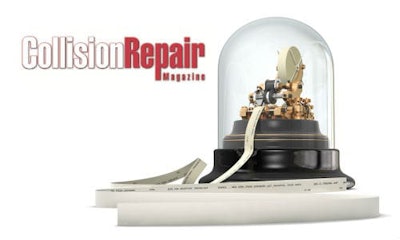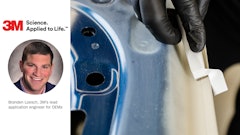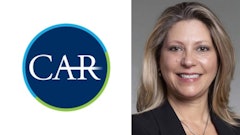
By Jeff Sanford
Toronto, Ontario — September 11, 2017 — In the latest edition of Tuesday Ticker, we look into why Hurricanes Irma and Harvey might actually be good for the US economy, Boyd battens down the hatches, why it might be a good time to invest in Uni-Select and much, much more!
It’s not possible to overstate the devastation and tragic loss of life caused by Hurricanes Harvey and Irma, but it might actually be good for the American economy as a whole. The President of the New York Federal Reserve has said that the recovery efforts from the two hurricanes could help the US economy grow, rather than contract. According to Cox Automotive between 300,000 and half a million vehicles have been destroyed. Of those 20 percent will be repaired. Most of the rest will be replaced with used vehicles. In terms of new cars, according to one estimate, there might be new sales of 135,000 units. That will be good for automakers, especially as so many sales in Texas involve highly profitable pickup trucks. In the secondhand market, car prices have been falling as vehicles bought new on lease three years ago are now coming into dealer lots. Car finance companies have been tightening leasing terms as a result, affecting US new car sales. The two hurricanes will help strengthen demand in the market. Car sales could be up by 1 percent as a result of the storms. This won’t reverse the expected 2.7 percent contraction in sales in the US this year, but it will help stall the decline.
AkzoNobel
– Just a few short weeks after Danish paint maker AkzoNobel claimed fantastic growth prospects as a reason to resist the overtures of PPG this past spring, the company has issued a profit warning. According to a press release, the company said it was no longer going to increase operating profit by €100 million in 2017. The company had promised to do so when it was fighting off the activist investor Elliott Advisors, the New York hedge fund that was trying to force the PPG takeover bid.
In an appeal to shareholders, AkzoNobel management argued that one of the good reasons for AkzoNobel to reject the €27 billion takeover bid from PPG wer the large profits that current management forecasted would be generated. Now the company has issued a warning that the promised numbers won’t be achieved.
The new CEO of AkzoNobel, Thierry Vanlancker, was quoted as saying, “Current challenges in the paints and coatings market are having a wider and greater impact as the year continues and we are dealing with these head on.” The company did insist it would achieve its financial targets for 2020: a 15 percent return on sales and more than 25 percent return on investment at the paints and coatings division.
– AkzoNobel also announced this week that it is donating $250,000 to support hurricane relief and recovery efforts in Texas. As a paint company, the organization depends on the petrochemical industry. In fact, AkzoNobel has four office and manufacturing locations and more than 700 employees in the greater Houston area.
“We have followed the events in Houston very closely and with great concern about the welfare of our colleagues, their families and the greater community,” says Johan Landfors, President, AkzoNobel North America. “Like others in Houston, many of our employees have lost their homes and were displaced by this catastrophe. We know it will be a long road to recovery, but we want to do our part today to show our support for a community in need.”
AkzoNobel is also donating an additional $100,000 to match employee donations to non-profit organizations and direct to employee efforts through a GoFundMe initiative. To date, AkzoNobel employees have donated more than $20,000 in funds to directly support impacted employees. Speaking on the situation in Texas, AkzoNobel CEO Thierry Vanlancker was quoted as saying, “Our focus is on helping families that were impacted by the storm recover and return to their normal way of life. The greater Houston area is also the bedrock of the petrochemical and related industries, and the recovery in that area includes getting the communities’ business infrastructure online. We hope that our financial commitment to help the community recover from this crisis can also assist in helping the region maintain its leadership role in the industry.”
Boyd Group
– Boyd also issued a public statement as a result of the storms. As a publicly traded company, the organization has to warn investors about material changes in business at the company. And so Boyd released a statement noting that, “… 55 of its 58 Gerber Collision & Glass locations in the state of Florida and three coastal Georgia locations have been closed to allow employees to prepare for the impact of Hurricane Irma.”
The company’s CEO, Brock Bulbuck, was quoted as saying that, “This decision was made to allow our employees and customers to focus on ensuring they and their families are safe. Once the hurricane has passed we will support our local teams in evaluating the damage and resuming operations as soon as practicable. Our priority, however, will continue to be the well-being of our employees.”
Of the Boyd Group’s 480 locations, 58 are currently being impacted by closures according to the release. In addition to the closures in Florida and Georgia thus far, it is also possible that additional closures may be necessary in other parts of Georgia, and even possibly in coastal North Carolina. Boyd management warned as a result that, “The location closings will result in loss of sales during the period of closure, however the overall magnitude of sales and earnings loss will not be determinable until the storm passes, the locations reopen and all of the variables associated with this event, including the availability of insurance can be fully assessed. An estimate of the full impact of these closures should be available for disclosure when the Fund’s third quarter earnings report is released on November 8.”
Bulbuck was also quoted as saying, “Our thoughts are with those affected by this devastating event. We will continue to monitor the direct impact of the storm on our locations and provide support as needed for our employees and customers.”
– Boyd Group Income Fund also announced that on November 2, 2017 it intends to redeem in full all of its then outstanding 5.25 percent debentures due October 31, 2021. The company has been reducing its outstanding debt. This can be considered part of that effort. The redemption price for the debentures will be 100 percent of the outstanding principal amount together with accrued and unpaid interest, according to a press release.
Uni-Select
– National Bank Financial increased its estimates for third quarter earnings for Uni-Select last Tuesday. The company released a note to investors predicting the company will post earnings of $0.59 per share for the quarter, up from a prior forecast of $0.55. Shares of Uni-Select have reached a new 52-week low. Last week shares were trading as low as $26.18. Could this be the time to get in?
AutoCanada
– Shares of auto dealership company AutoCanada has been rising as the Alberta economy recovers. An important indication of the new, more optimistic attitude toward shares in the company can be found in an interesting statistic: The number of shortsellers in the stock has declined substantially. Shortsellers are traders betting that a stock will decline in price in the months ahead. Through various trading techniques involving shares loaned temporarily from larger investment banks, traders can invest so that they make money off of declines in the price of a share. They invest in companies they think are going to experience volatile or declining business.
For the last couple of years shortsellers have profited from AutoCanada as the western economy slowed and sales dropped. But the most recent stats on shortsellers in AutoCanda show that short interest has dropped by almost 40 percent. Investors are not betting on declines like they were.
LKQ
– LKQ has appointed Varun Laroyia as Executive Vice President and Chief Financial Officer, effective October 1, 2017. Laroyia has a background in corporate finance, operations management, systems and mergers and acquisitions. Laroyia has been the Chief Financial Officer of CBRE’s Global Workplace Solutions business since 2015, following CBRE’s acquisition of the GWS business from Johnson Controls, where he was the Chief Financial Officer and VP of Information Technology since 2013. CBRE is a massive billion-dollar real estate outsourcing firm with 40,000 employees in 50 countries.
Related Market Notes
– China’s auto sales continue to explode as the world’s most populous country continues to adopt an auto-based way of life. Car sales across the country rose 4.1 in August, compared to the same period a year before. Chinese buyers bought almost 2.2 million vehicles in August, a big 6.1 percent increase from the same period the year before. Within that total, SUV sales rose a remarkable 17.7 per cent. Chinese vehicle sales have fallen from a full-year sales growth rate of 15 per cent experienced in 2016.
– The Canadian economy continues to do well overall. Canadian housing starts, which are generally considered a good indicator of overall economic health, surprised on the upside in August. A surge in condo construction offset an expected decline in the construction of single detached homes according to the Canada Mortgage and Housing Corporation. The Canadian dollar is up 12 percent since spring. The low interest rates have ensured that. But a Reuters poll finds that many experts expect the dollar to decline in the months to come as the negotiations over NAFTA continue, as the effect of the rate increases gives way.



















